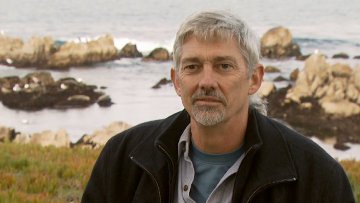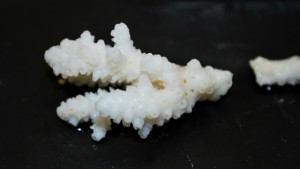Stephen Palumbi, Director of Stanford University's Hopkins Marine Station, is one of the world's leading authorities on tropical corals and the pressures they face from climate change - namely, warmer and more acidic oceans.

Professor Palumbi has been traveling for years to Ofu, a tiny island in American Samoa, to study how some species of corals are capable of adapting to waters within this patch of the South Pacific, which would otherwise be too warm for them to survive. "So either the corals hadn’t read the scientific literature and didn't know they should be dead, or they were doing something different than anybody else knew about," he said. "Our work there really was built around the idea of trying to find out from the corals how it was they were living in places that were too hot for them," he added.
His research team's inquiry into the resilient adaptation of these "super corals" is more than just academic. As he explained to me, most of the oxygen we breathe come from tiny algae that live in the ocean and that a quarter of all marine species depend on corals for their survival. So the decline of the world's corals portends bad news for the marine ecosystem, from tiny crustaceans to the psychedelic, vividly-hued parrotfishes which eat algae and seaweed among vast reefs of table corals.

Palumbi's path to and passion for marine biology began at a young age. He grew up in Baltimore and the proximity to the water, as well as the support of his parents, one of whom was a schoolteacher, sparked his lifelong interest in science. "We'd go down the docks to see the big marlin competitions come back and we’d see those fish, and we’d go to the beach for vacations," he said, adding, "The ocean is full of mysteries...And what I love is uncovering those mysteries and figuring them out and explaining them and revealing them."
Like most scientists, Palumbi is attracted to the process of discovery which lies at the heart of nearly every scientific discipline. These discoveries are often the culmination of dedication, diligence and the perseverance to slog through long days and the painstaking, even tedious, analysis of massive amounts of data. But as Palumbi told me, "everyone is a scientist...everybody has to get data in their life."